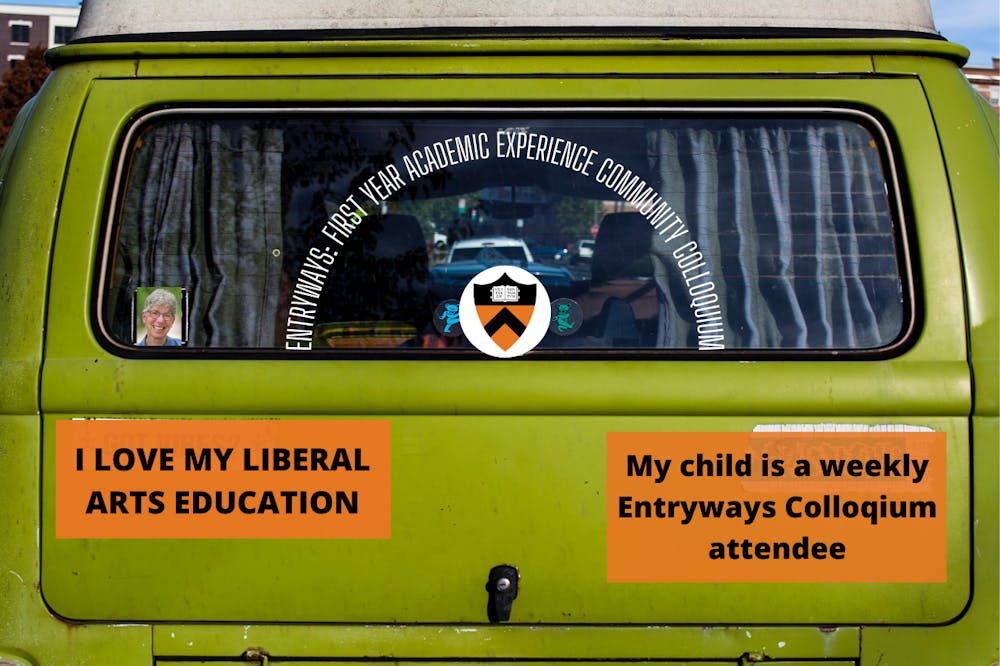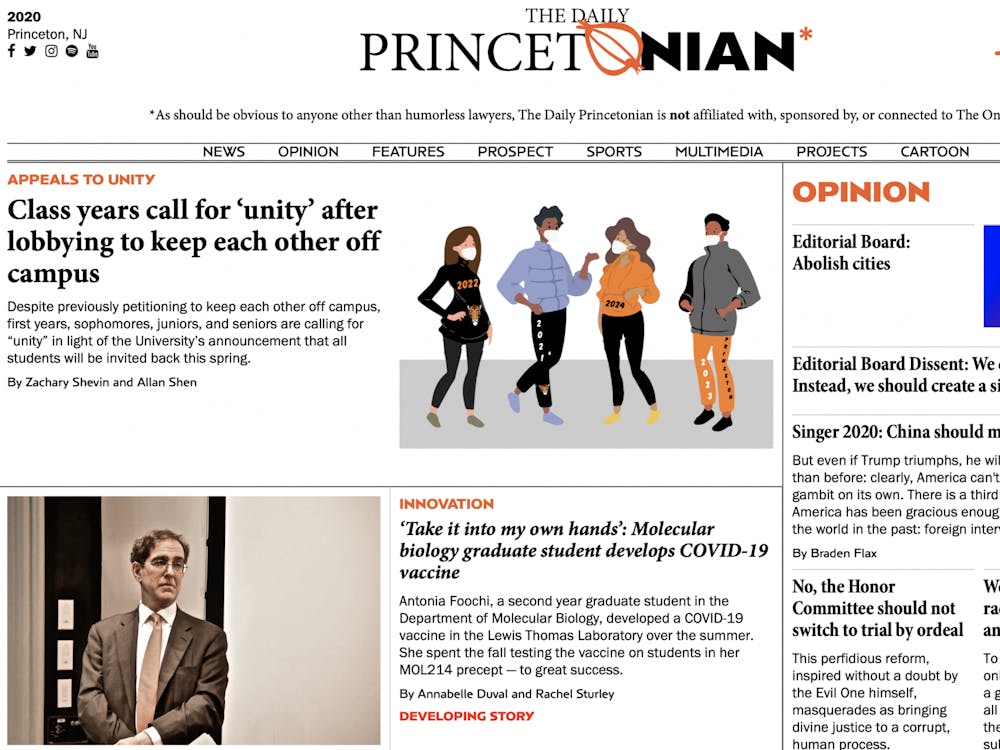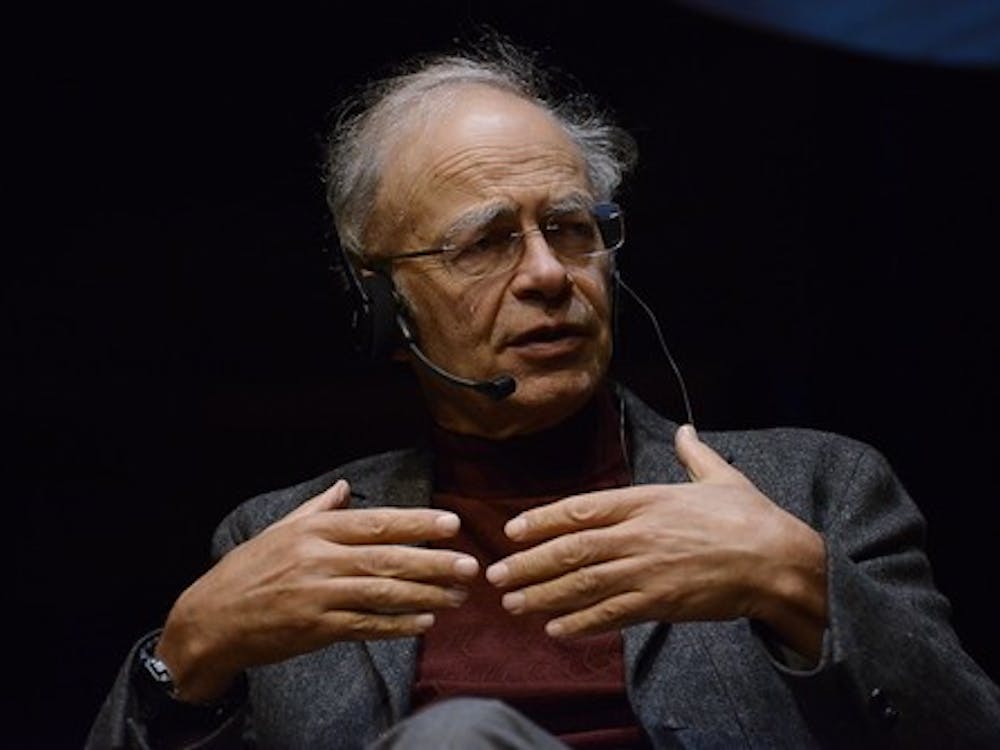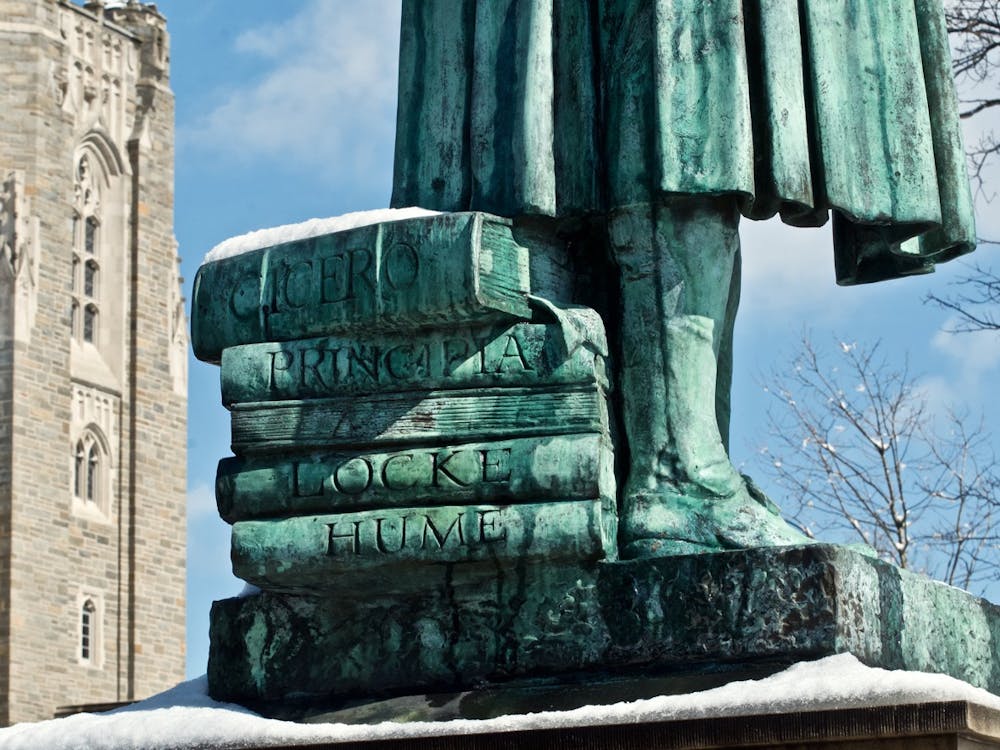The following content is purely satirical and entirely fictional. This article is part of The Daily Princetonian’s annual joke issue, which you can find in full here. Don’t believe everything you read on the Internet!
Despite convenient Thursday afternoon timing, the University’s Entryways program — an expansive effort made to engage first-year students in discussions surrounding the meaning of a liberal arts education — has had limited success.
In the context of the University’s motto “in the service of humanity,” the experience includes weekly college colloquiums where University faculty give virtual presentations on their research and topics of interest. These have included discussions on the history of undocumented immigrants and how to tackle the world’s environmental challenges.
The Entryways Program is meant to replicate the traditional zee group experience. What would a first-year fall be without soaking in the fall foliage in front of Nassau Hall, attending football games, making spontaneous trips to Late Meal, and of course, weekly virtual colloquiums?
Yet, an anonymous survey of the Class of 2024 found that only 18.7 percent of first-years were aware of the program, while 95.2 percent were unsure of how to define “colloquium.”
“I usually have assignments due Friday, so I think to myself, maybe serving humanity can wait for the weekend,” explained one Mathey College student who was granted anonymity out of fear of retaliation.
“I only wish the topics covered were more topical,” he added. “I would love to hear about the history of the Peloponnesian War or an introduction to calligraphy. I mean, what I am learning from a presentation on polarization in contemporary America?”
Dean of the College Jill Dolan told The Daily Princetonian that, in addition to colloquium being on her list of the “top 30 most fun words to say,” she hoped the catchy title of “Entryways: First Year Academic Experience Community Colloquium” would entice students to attend.
Unfortunately, the memorable moniker has done little to incentivize attendance. On Oct. 1, the ‘Prince’ reported, based on information from the University, that approximately one quarter of the first-year class attended weekly colloquia. A University spokesperson told us today that they may have been too liberal with their usage of “approximately.”
“One eighty-fourth of the first-year class didn’t have the same ring,” they noted.
The poor attendance was not for insufficient effort on the University’s part. Administrators have been known to personally compensate students who participated in colloquia Q&A sessions in Bitcoin currency. Other students were reported to have received ransom-note type letters to their homes, which spelled “come to the weekly college colloquium” in magazine letters. The University declined to comment on this matter.
In an effort to increase attendance mid-semester, the University considered having each colloquium begin with an opening musical act and monologue delivered by University administrators.

In the fourth week, the colloquium planned to open with a live musical performance from the cast of the 2019 film “Cats,” followed by a spoken word poem by President Christopher Eisgruber ’83. This did not pan out due to scheduling reasons.
Dolan also personally printed and sent care packages of “I love my Liberal Arts Education” and “My child is a weekly Entryways: First Year Academic Experience Community Colloquium attendee” bumper stickers to the homes of the loyal few attendees.
While few first-year students attend the colloquiums, those who do are devoted.
“When I finish up a hard week of classes, I just love to curl up on the couch, make some hot cocoa, and log in to the Thursday afternoon colloquium,” one student, who preferred to remain anonymous, said. “There’s just something about finishing up a really tough week of Zoom classes with a refreshing webinar and the soothing voice of Dean Dolan.”
The same student also reported experiencing heavy withdrawal symptoms during midterms week, when no college colloquium took place. The student outlined symptoms consistent with the psychological ailment of “sleep Canvassing,” or subconsciously waking up in the middle of the night and typing on Canvas discussion boards.
Four other students, the only four others to attend the semester’s last colloquium, reported similar symptoms.








